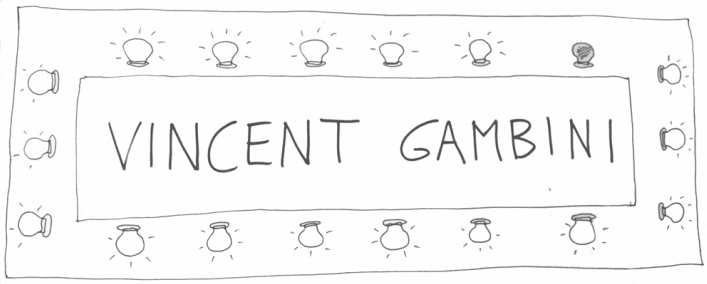I'm busy preparing a presentation for the Wellcome Collection in London.
It's not going to be an 'expose' of how magic tricks work, but more a look at how magicians practice, what kind of things magicians spend their time doing, behind the scenes, etc.
And it occurred to me that in fact 'explaining' how magic tricks work is close to impossible. Of course some broadly speaking 'mechanical' or technical aspect can be explained. Let's take for example a classic card trick, in which a spectator randomly selects a card and signs it: the magician then tears the card up very clearly, and then the card is found, all whole, in some other location e.g. the magician's pocket.
A purely 'mechanical' explanation might mention things like: having a duplicate card, switching one for the other, or using a 'clone' signature. But these things don't really explain much. They don't explain how spectators are convinced (and rightly so) that is the same signed card that is being torn (it is), and the same signed card that is later shown to be whole again (it is). They don't explain how it's possible that such a feat be interesting to watch, and why; they don't explain psychological, emotional connotations at play in the feat; they don't explain, in short, why such a feat really works on the audience, and why.
Another way of putting it could be this: magicians spend a life time trying to understand magical feats in relation to their audience: to understand, for example, on which beat to execute a particular move, or which words to precisely use, or how to use the gaze, etc. And it is the interaction of bodily and perceptual decisions, actions, pauses, gestures, and words, together with the spectator's own interpretation and elaboration of the whole situation, that constitutes the 'real' method: it is this larger and subtle interactive choreography (let's call it) that truly allow spectators to fool themselves.
At the risk of sounding pedantic (I know I am!), even a simple magic trick can't really be explained, at least not in the way we typically understand that idea. One could try and describe all the subtleties and principles at work. But that would take a huge amount of work: a life work, in fact, learning, refining, questioning, and changing approaches. And that is what magicians do.
PS
Simply as a bonus, a short classical act by P&T, in which their Cups and Balls trick is 'explained', though not at all.

 RSS Feed
RSS Feed